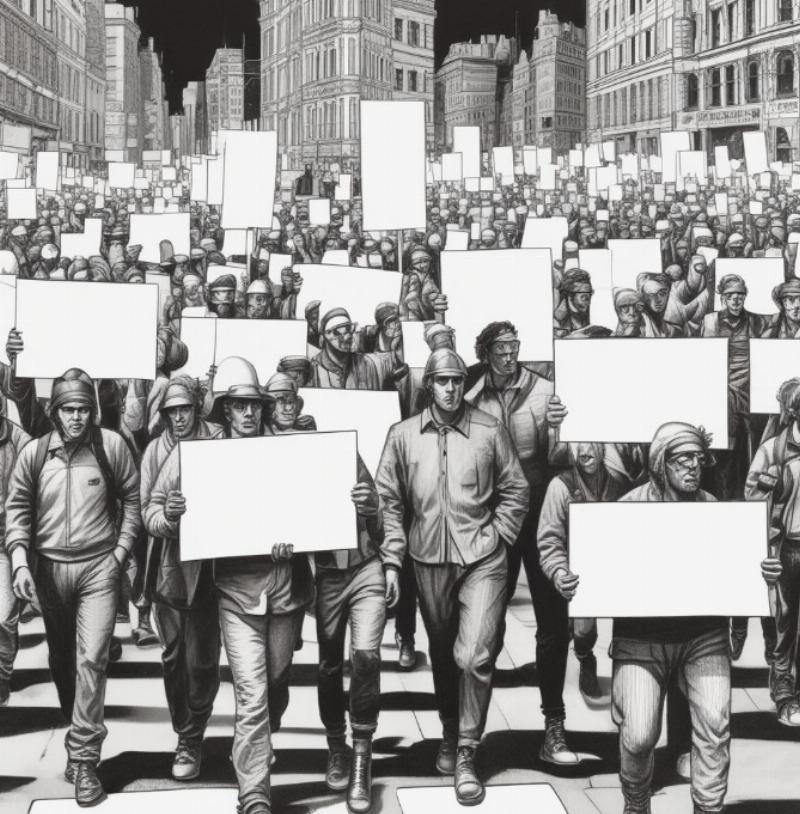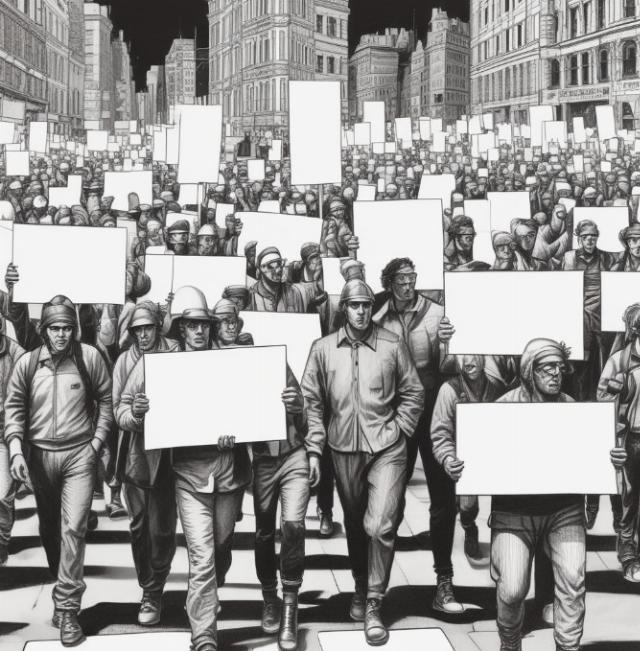


Absent sound money, a modern economy would revert to primitive barter where a cow might cost three goats. The introduction of money, at least in principle, solved relying on barter, but this also brought counterfeiting. Now, a dishonest person might debase a coin’s true value by filing off their edges or minting fake coins that replaced silver with lead. The rise of paper money similarly invited deceit -- inflation -- when cash-strapped governments just printed yet more paper currency until only the paper had value, so this “money” became wallpaper, even toilet paper.
Governments thus have strict laws regarding debasing currency. When Issac Newton was appointed Warden of the Royal Mint in 1695, he tortured and executed counterfeiters. Article I, section 8 of the U.S. Constitution assigns the federal government the power to coin and regulate the currency and the power to punish counterfeiting. Section 10 prohibits states from issuing money other than those made from silver or gold. Today, many fear that the U.S. Treasury will render the dollar valueless by printing up trillions of greenbacks.
Both the dollar and the English language are mediums of exchange, and just as a dollar bill can become worthless, words can deteriorate into gobbledygook. Unfortunately, with no Secret Service to prevent linguistic debasement, American politics seems to be undergoing an epidemic-like linguistic inflation akin to the German currency inflation of 1923 when the mark became virtually valueless. It is not that English is adding new words or that old words evolve; rather, innumerable words are losing their original meaning, a situation akin to a currency becoming valueless.
Such “linguistic inflation” is particularly evident in the victimhood vocabulary where terms are stretched into meaninglessness for political gain. “Racism” is undoubtedly the most extreme example, and almost anything can now be deemed “racist.” Like gravity, racism is everywhere and like gravity, its impact is, allegedly, undeniable. Indeed, inventing new forms of racism has become a thriving industry and its inventors often claim “racism” can be nearly invisible (“implicit racial bias”) and atmospheric in its impact -- “systemic racism” and “structural racism.”
A similarly linguistic debasement afflicts “hate.” What was once just a strong aversion, dislike or loathing has been transformed into mere disagreement. Now, objection to same-sex marriage has been redefined as hating homosexuals, so opposition to a court-mandated public policy makes one “homophobic.” Ditto for disagreeing with those endorsing surgery to alter a person’s biological sex or allowing boys to compete in girls’ sports -- all, allegedly, “transphobic.” Significantly, appending “phobic” to this newly expanded hate definition conveys an element of mental illness implying that the cure for hate in not reasoned rejoinders but mental counseling.
 Then there’s stretching “oppression” to include nearly everything that a thin-skinned person might find objectionable. Now, for example, a youngster struggling in a tough college might consider himself “oppressed,” and since this “oppression” is inescapable, only “liberation” is the solution to the stifling oppression. A now commonplace “oppression” is “micro-aggressions.” Here even the slightest unpleasant encounter, e.g., bad restaurant service, becomes as “aggression” while a compliment might be a micro-aggression, for example, a white person telling a black “You’re smart.”
Then there’s stretching “oppression” to include nearly everything that a thin-skinned person might find objectionable. Now, for example, a youngster struggling in a tough college might consider himself “oppressed,” and since this “oppression” is inescapable, only “liberation” is the solution to the stifling oppression. A now commonplace “oppression” is “micro-aggressions.” Here even the slightest unpleasant encounter, e.g., bad restaurant service, becomes as “aggression” while a compliment might be a micro-aggression, for example, a white person telling a black “You’re smart.”
President Donald J. Trump’s election has super-charged linguistic inflation. His enemies have ransacked the historical vocabulary of evil appellations to discredit him. Name-calling has replaced offering policy alternatives. Defamations include “Nazi,” “fascist” and “King” while his exercise of legitimate legal authority has been compared to Hitler’s Gestapo. One notable civil rights lawyer, Burt Neuborne, wrote a detailed comparison between Trump and Hitler. Words have been twisted to the point where ending federal funds to National Public Radio becomes “censorship” while banning schools from teaching about drag queens violates “freedom of expression.”
Trump’s enemies have also utilized legal-like phraseology against him though it is clear to those familiar with this terminology that this use is grossly inappropriate. Trump is thus accused of creating “a constitutional crisis” or is “an existential threat to democracy” by firing executive branch employees while unleashing the Immigration and Customs Enforcement (ICE) agency to “kidnap” the “undocumented” so as to put them into “concentration camps” and children into “cages.” When Trump seeks to protect Jewish college students, he is accused of “undermining academic freedom.” For supporters of Hamas, Trump is allowing an “apartheid” “colonial settler-run” Israel to commit “genocide.” Sadly, few people know what a “concentration camp” is or will look up “apartheid,” let alone correct those abusing the English language.
This debasement of the English language, like currency debasement, is dangerous. Crying wolf is risky. Endlessly invoking “oppression” or “fascism” insulates people from recognizing the real thing, when and if it appears. Ditto for accusation of election fraud. American is not immune to government overreach with unauthorized wiretaps, extralegal harassment of radicals, frivolous lawsuits, and similar political excesses, but if the slightest overstep is denounced as “totalitarian,” what happens when a real wolf arrives?
Eviscerating our vocabulary can only further dumb-down public debate. Discussing public affairs now becomes a Tower of Babel where each person has their personal and possibly unique definition of “racism” or “constitutional crisis,” and people talk past each other. As George Orwell famously said, “…the slovenliness of our language makes it easier for us to have foolish thoughts.” Hyper-elastic definitions also permit the uninformed, particularly TV pundits, to enter the debate since the ill-informed can always inanely say, “Well, to me, a threat to democracy just means electing a bad person” and who can disagree? This is a marketplace of ideas where nobody can agree on the meaning of words.
Ironically, the opposite may also be true -- deceptive labeling can restrict entry into a public forum by demonizing those who hold certain views. Who wants to be accused of transphobia if opposition to men playing in girls’ sports is a considered hateful or a sign of mental illness? Black political organizations have often won simply by labelling all opposition as “racist.” Even demanding a definition of “racism” is often deemed “racist.” It is better to keep silent than risk being denounced.
Ever-expanding definitions of evil to score political points trivializes evil. To equate ICE to the Gestapo conflates arresting illegals and deporting them with rounding up Jews to be gassed at Auschwitz. No wonder many Cuban and Venezuelan refugees reject the Left’s expansively defined “oppression” narrative -- they experienced real oppression firsthand. Civil society rests on a demarcation between good and evil, and linguistic gamesmanship invites returning to savagery. Who wants to live in a world where people can make up “good” and “evil” as it suits them? This is the equivalent of an economy where each person coins their own money.
Curtailing economic debasement is difficult enough; stopping linguistic inflation is nearly impossible. No Secret Service-like agency exists to stop people from twisting words into vacuous nonsense. Definitions cannot be imposed. Dictionaries merely catalogue conventional usage, and if people insist that “being oppressed” is merely hurt feelings, that becomes its definition.
We worry about protecting the value of the dollar, perhaps we should also be concerned about the deteriorating state of the English language. Time to ask people what they mean exactly when they toss around terms like “fascist,” and if they have no idea, advise them to keep quiet.
Image: AT via Magic Studio
